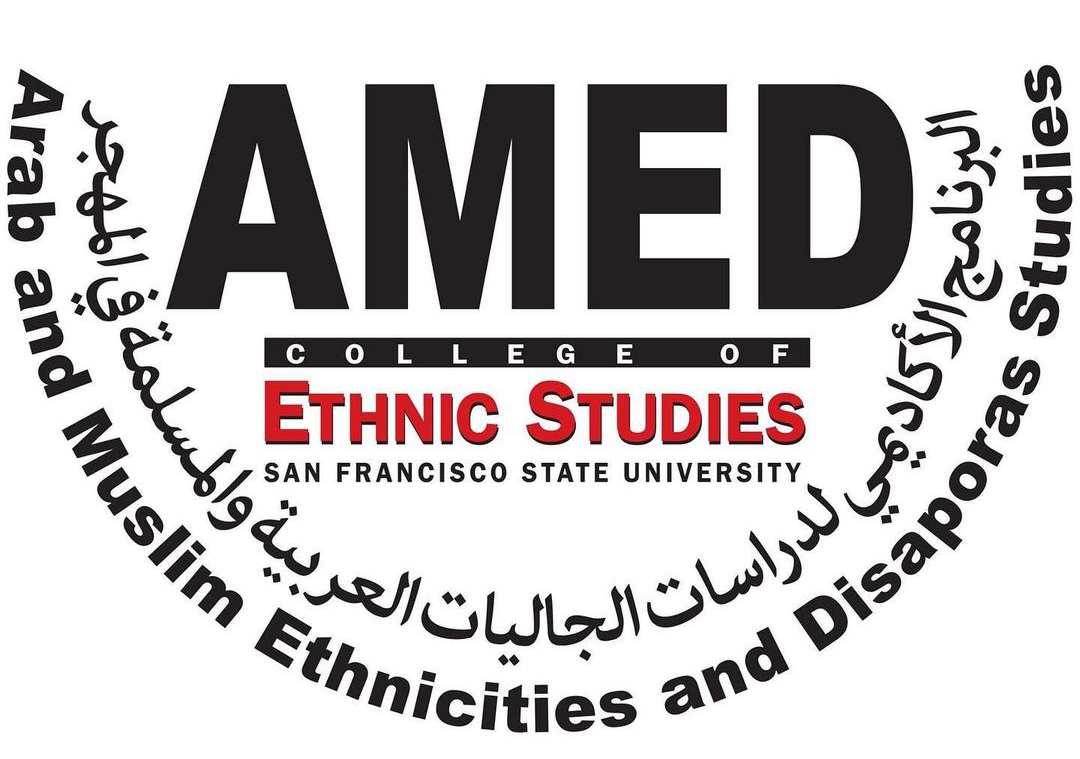The History of Arab and Muslim Ethnicities and Diasporas Studies
We take our cue from the legacies of the 1968 San Francisco State University Student Strike that called for and succeeded in achieving robust and relevant education that both reflects the lived experiences of marginalized communities by offering anti-racist and anti-colonialist scholarship of excellence and critically engages the broader liberal curriculum by rethinking and re-envisioning an alternative to Eurocentric foundations of today’s social thought. We define Arabs and Muslims as integral parts of communities of color within the U.S., in the Americas, and transnationally across other Diasporas and place the study of Arab and Muslim communities within their historical and material conditions rather than through phenotypical identity politics, in itself a colonial legacy that reinforces rather than challenges the essentialism of race and racial hierarchy.

Arab and Muslim diasporic communities have long been the target of cultural and political misunderstanding, discrimination, and misrepresentation. Although these communities have been present in the U.S (and other Western Diasporas around the world), for centuries, the current political U.S. and global context (“war on terror”, Islamophobia, threats against Iran, continuing Israeli occupation of Palestinian and Arab lands, etc.) has pushed them to the forefront of media and governmental attention. Consequently, this negative portrayal has also generated a strong need for nuanced knowledge and understanding about Arab and Muslim communities, on the San Francisco State campus and the public at large, with the proviso that while they (Arabs and Muslims) are distinct communities with diverse identities and historical narratives, this particular historical moment necessitates their examination within one inter- and multi-disciplinary field of study AMED courses and programs take a multi-disciplinary approach that brings together a wide range of areas including Arab/Middle East/Global Studies, Race/Ethnic Studies, and Critical Cultural Studies.
The ever increasing historical realities and lived political and racialized experiences of Arab and Muslims highlight most definitely and profoundly the need to study Arabs and Muslims within non-Eurocentric and anti-colonial frameworks that restate Arabs and Muslims as integral stakeholders in the fight for justice and liberation within and across these lands. It is often the case that the experiences and lived realities of some that may seemingly fit neatly within historical categorizations and traditional canons of scholarship on Africana, Latino/a Studies, American Indian, and Asian American communities fall through the cracks. By carving a niche for Arab and Muslim communities that have not historically had a home in Ethnic Studies programs, AMED Initiative aims to expand the scope of Ethnic Studies as a field, to better contextualize and gain a firmer grasp of the multiple workings and degrees of racial, religious, and political oppression resulting from historical and current colonial realities in the United States and globally.